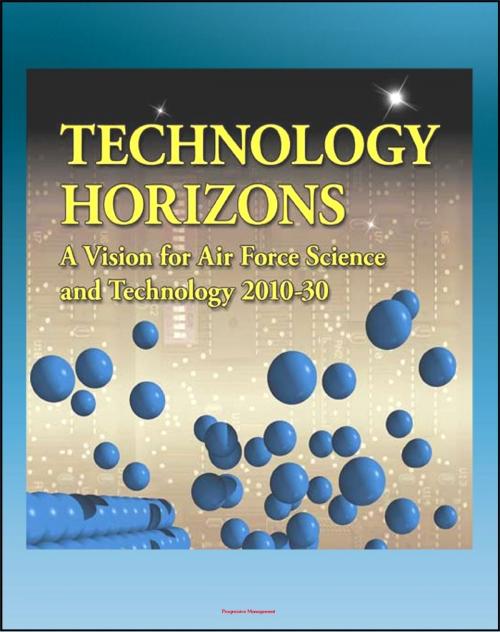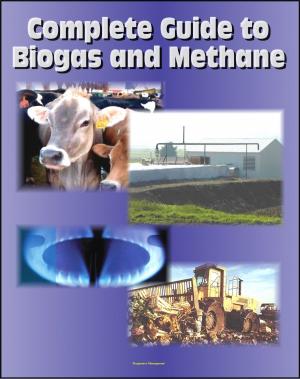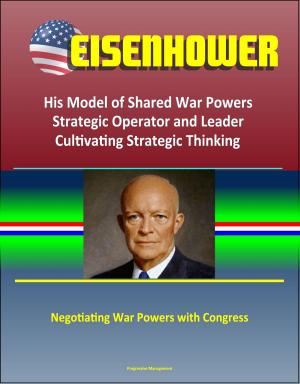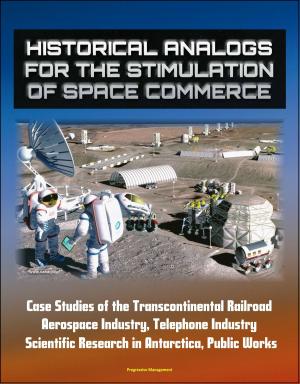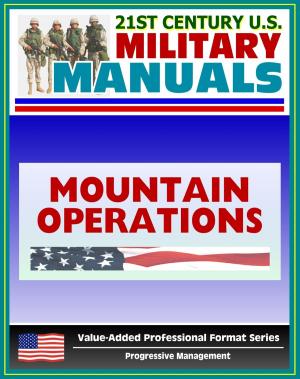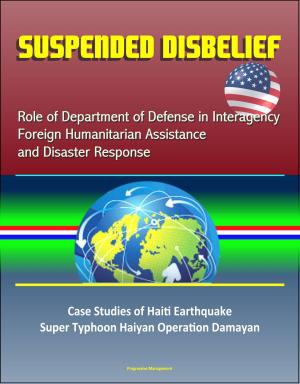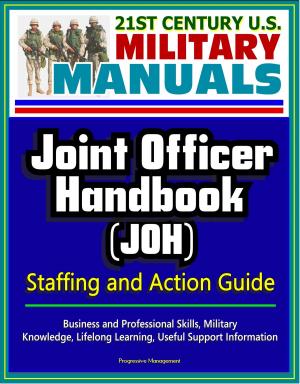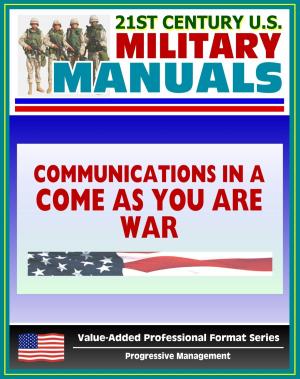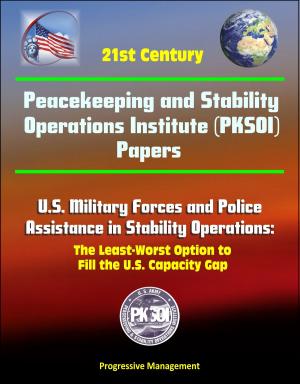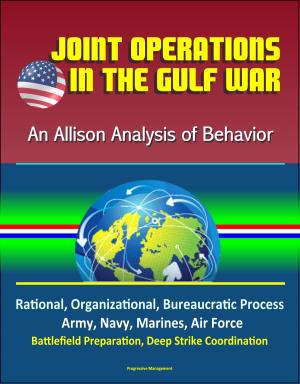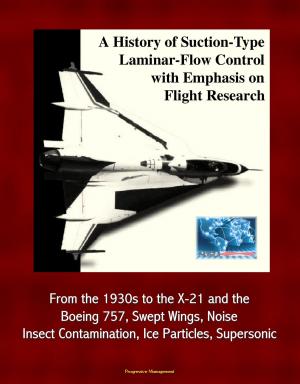Technology Horizons: A Vision for Air Force Science and Technology 2010-30 - Aircraft, Radar, Missiles, Satellites, Directed Energy, Launch Systems, ASAT, Cyber Systems
Nonfiction, Science & Nature, Technology, Aeronautics & Astronautics, History, Military, Weapons| Author: | Progressive Management | ISBN: | 9781476305202 |
| Publisher: | Progressive Management | Publication: | March 30, 2012 |
| Imprint: | Smashwords Edition | Language: | English |
| Author: | Progressive Management |
| ISBN: | 9781476305202 |
| Publisher: | Progressive Management |
| Publication: | March 30, 2012 |
| Imprint: | Smashwords Edition |
| Language: | English |
Technology Horizons: A Vision for Air Force Science and Technology 2010-30 concentrates on
key science and technology focus areas for the US Air Force over the next two decades that will provide technologically achievable capabilities enabling the Air Force to gain the greatest us joint force effectiveness in 2030 and beyond.
Contents: Chapter 1: Introduction * Chapter 2: Strategic Context for Air Force S&T 2010-30 * Chapter 3: Enduring Realities for the Air Force 2010-30 * Chapter 4: Overarching Themes for Air Force S&T 2010-30 * Chapter 5: Technology-Enabled Capabilities for the Air Force 2010-30 * Chapter 6: Key Technology Areas 2010-30 * Chapter 7: Grand Challenges for Air Force S&T 2010-30 * Chapter 8: Summary of Technology Horizons Vision * Chapter 9: Implementation Plan and Recommendations
Technology Horizons is our vision for key Air Force science and technology investments over the next decade that will provide us with truly game-changing capabilities to meet our strategic and joint force responsibilities. The coming decades hold high promise for amazing new capabilities across the air, space, and cyber domains. Yet the Air Force and our nation will also be confronted with substantial strategic, technology, and budget challenges. Our greatest advances will come with a focused investment of resources in the most promising technologies. The vision in Technology Horizons provides the shared awareness of the challenges and opportunities that will enable us to achieve this focus.
Technology Horizons presents a clearly articulated and credible assessment of the strategic environment and enduring realities we face. It outlines a set of overarching themes that defines attributes our future Air Force systems will need to prevail. New technology-enabled capabilities are envisioned that meet key needs, including long-range strike, deterrence tools, cyber resilience, energy efficiency, and automation and enhanced human-machine interfaces, to help our most valuable asset—our Airmen—be even more effective than today. We believe the Air Force must boldly move forward to advance these technologies through the dedicated, creative, and focused efforts of our science, technology, engineering, and mathematics workforce. The future is ours to shape.
To implement this vision, we are concentrating a meaningful portion of our Air Force Research Laboratory effort on the identified key technologies. We will move forward in pursuing "grand challenges" that will help achieve militarily useful capabilities. We will work closely with our partners across the Department of Defense, government, industry, academia, and allied nations to leverage the best intellectual capital and facilities in pursuit of the most promising ideas. And we will sustain our focus on these science and technology efforts to maximize their likelihood of being transitioned into operational capabilities meeting Air Force needs. We firmly believe that maintaining our technical and operational superiority in this manner is both necessary and attainable.
Therefore, we encourage all Airmen—indeed all warriors and our other national and international partners—to read Technology Horizons and seriously contemplate the transformative opportunities that technology can enable in the coming decades. We call on you as Airmen to contribute your intellectual energy to developing new frameworks and novel concepts of operations to take maximum advantage of these coming technologies. These are challenging times, but we have no doubt that America's Airmen will overcome the challenges we face to provide the critical capability advances needed to ensure the United States Air Force remains the world's premier air force through 2030 and beyond.
Technology Horizons: A Vision for Air Force Science and Technology 2010-30 concentrates on
key science and technology focus areas for the US Air Force over the next two decades that will provide technologically achievable capabilities enabling the Air Force to gain the greatest us joint force effectiveness in 2030 and beyond.
Contents: Chapter 1: Introduction * Chapter 2: Strategic Context for Air Force S&T 2010-30 * Chapter 3: Enduring Realities for the Air Force 2010-30 * Chapter 4: Overarching Themes for Air Force S&T 2010-30 * Chapter 5: Technology-Enabled Capabilities for the Air Force 2010-30 * Chapter 6: Key Technology Areas 2010-30 * Chapter 7: Grand Challenges for Air Force S&T 2010-30 * Chapter 8: Summary of Technology Horizons Vision * Chapter 9: Implementation Plan and Recommendations
Technology Horizons is our vision for key Air Force science and technology investments over the next decade that will provide us with truly game-changing capabilities to meet our strategic and joint force responsibilities. The coming decades hold high promise for amazing new capabilities across the air, space, and cyber domains. Yet the Air Force and our nation will also be confronted with substantial strategic, technology, and budget challenges. Our greatest advances will come with a focused investment of resources in the most promising technologies. The vision in Technology Horizons provides the shared awareness of the challenges and opportunities that will enable us to achieve this focus.
Technology Horizons presents a clearly articulated and credible assessment of the strategic environment and enduring realities we face. It outlines a set of overarching themes that defines attributes our future Air Force systems will need to prevail. New technology-enabled capabilities are envisioned that meet key needs, including long-range strike, deterrence tools, cyber resilience, energy efficiency, and automation and enhanced human-machine interfaces, to help our most valuable asset—our Airmen—be even more effective than today. We believe the Air Force must boldly move forward to advance these technologies through the dedicated, creative, and focused efforts of our science, technology, engineering, and mathematics workforce. The future is ours to shape.
To implement this vision, we are concentrating a meaningful portion of our Air Force Research Laboratory effort on the identified key technologies. We will move forward in pursuing "grand challenges" that will help achieve militarily useful capabilities. We will work closely with our partners across the Department of Defense, government, industry, academia, and allied nations to leverage the best intellectual capital and facilities in pursuit of the most promising ideas. And we will sustain our focus on these science and technology efforts to maximize their likelihood of being transitioned into operational capabilities meeting Air Force needs. We firmly believe that maintaining our technical and operational superiority in this manner is both necessary and attainable.
Therefore, we encourage all Airmen—indeed all warriors and our other national and international partners—to read Technology Horizons and seriously contemplate the transformative opportunities that technology can enable in the coming decades. We call on you as Airmen to contribute your intellectual energy to developing new frameworks and novel concepts of operations to take maximum advantage of these coming technologies. These are challenging times, but we have no doubt that America's Airmen will overcome the challenges we face to provide the critical capability advances needed to ensure the United States Air Force remains the world's premier air force through 2030 and beyond.
